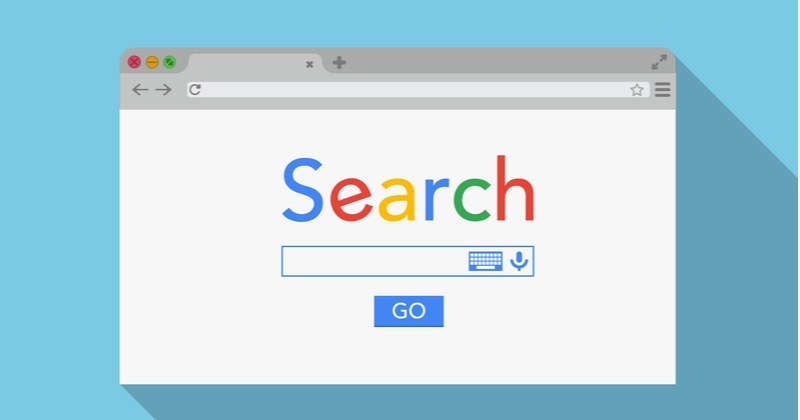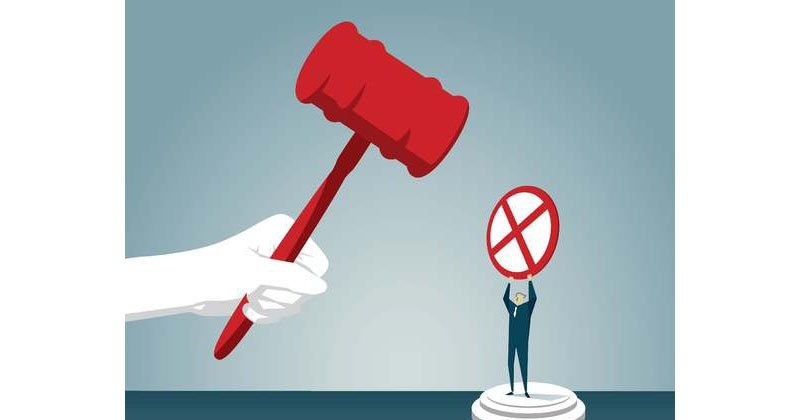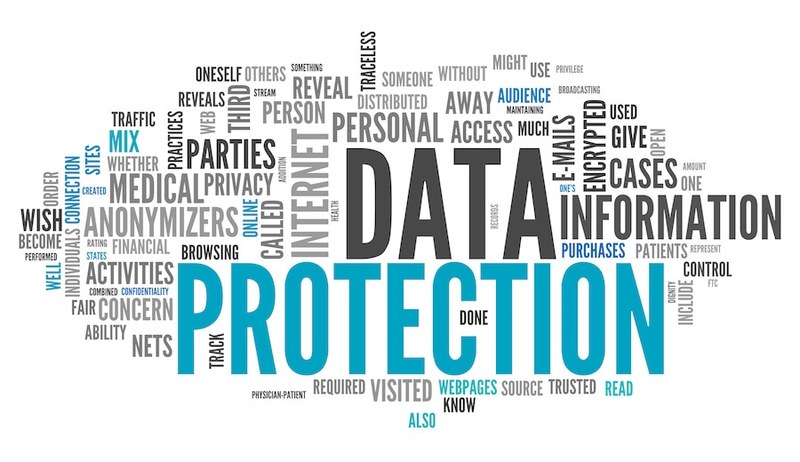Whatever will Big Tech be up to next?
Published in Nov-Dec 2019
A little bit of history helps

In 2003, I was researching a book about the likely impact of the digital revolution on advertising and marketing. Our hopes and ideas then seem terribly naïve today. Here is the kind of starry-eyed stuff we thought:
Markets were not going to be dominated by a few big players; rather many sellers will be able to reach many buyers wherever they are in the world. This would release the untapped potential of a “long tail “of niche makers and specialist interests.
Politics would improve because we would all have access to more information. The authorities and big business (in collusion) would no longer be able to control debate through censorship or limit the number of media channels. Politics would be more rational and better informed, because there would be more voices. Bad and poorly thought out policies would be subjected to the cleansing effects of scrutiny and open debate (which was part of Karl Poppers’ prescription for a better government).
This spirit was epitomised by John Perry Barlow with his Declaration of the Independence of Cyberspace published in 1996.

Here is an extract: “Governments of the Industrial World, you weary giants of flesh and steel, I come from Cyberspace, the new home of Mind. On behalf of the future, I ask you of the past to leave us alone. You are not welcome among us. You have no sovereignty where we gather. We have no elected government, nor are we likely to have one, so I address you with no greater authority than that with which liberty itself always speaks. I declare the global social space we are building to be naturally independent of the tyrannies you seek to impose on us. You have no moral right to rule us nor do you possess any methods of enforcement we have true reason to fear.”
This widely disseminated document was a peculiar blend of faith in the goodness of human nature, anarchism and hippy idealism, which inflected the early culture of the internet.
Early idealism comes up against reality

How did it all turn out? The internet evolved from being an elite activity (as it was 20 years ago) and became all-pervasive. Early idealism dissipated and it started to reflect human nature in general; the good, the bad, the greedy, the ambitious, the useful, the unreliable and all shades of morality in between. Big business (in the form of big tech) became dominant with startling rapidity. It was (with the exception of China) a USA phenomenon produced by the powerhouse that is Silicon Valley, where a combination of talent, innovation and venture capital produce newly minted start-ups that dream of becoming unicorns and their founders billionaires.
Silicon Valley tech came clothed in the language ‘doing good,’ (that hippy idealism is still deep in the DNA on the West Coast) but is in truth neoliberal capitalism, red in tooth and claw. Companies ‘move fast and break things’ and try to get as big as possible, as quickly as possible, in order to achieve a dominant market share.
Global markets did open up for enterprises of all sizes, which was a great boon to start-ups, innovators and specialists. But these markets were run by huge platforms – eBay, Amazon and Facebook, hand in hand with Google. For many businesses the question became: “How can I get onto page one of a Google search?” And of course, you have to pay for that. In the UK, whilst we were fretting about the excessive power of Tesco in retailing and Rupert Murdoch in media, new power brokers were taking control. We were looking in the wrong direction. Murdoch’s much feared tabloid newspapers now look like a pimple compared with Facebook, which is now the dominant global source of ‘news’ for the under 30s. Geographically limited Tesco looks weak compared to global Amazon.
This dominance of Big Tech was a product of what economists call ‘asymmetric knowledge.’ One side knows much more than the other and exploits the knowledge advantage. This is deliberate. Google and Facebook would much rather you did not understand how they operate. Google’s algorithm is their secret intellectual property.
As Shoshana Zuboff says of Big Tech (which she calls Surveillance Capitalism) “they know everything about us, whereas their operations are designed to be unknowable to us. They accumulate vast domains of new knowledge from us, but not for us. They predict our futures for the sake of others’ gain, not ours.” Or put more prosaically, we all happily shared our interests (i.e. our data) on their platforms and clicked OK on the T&Cs without reading them. Today, the ‘data signals’ that we send off are traded in ways that are obscure to the 99% of us who don’t understand ad-tech – and used by third parties, which are invisible to us, to alter our behaviour.
So, there you have it. In less than 20 years we have seen hippy idealism subverted by secretive big business. As you go about your daily lives, you are feeding the economic power of huge (mostly US) companies that are beyond the power of your government. When the House of Commons investigated the impact of Facebook on the Brexit vote, Mark Zuckerberg refused to show up to answer questions. Murdoch would never have done that.
The backlash of the intellectuals

Several powerful polemics by intellectuals and influencers have been published which could be summed up as “tech idealism and high hopes have been subverted by greed.” The truth is much less morally freighted than that. As Big Tech grew (due mainly to network effects and some buying out of challengers), they had to find business models or go bust. This was the early story of Google in particular and it led them into selling advertising to make money and fund growth. Selling ads is not the worst thing a corporation can do. Provided the ads don’t turn into online pollution, the vast majority of people will accept ads in return for free services. Big Tech is showing more restraint in serving ads nowadays because otherwise they would face a big increase in ad-blocking.
True, there is a problem with the excessive openness of ad buying systems, which has allowed bad actors (like the Russian Government) to spread misinformation, as they did during the 2016 US Election. (For an insight into this murky world, read Peter Pomarantsev’s excellent new book This is not Propaganda.) It will be a continual sore. Big Tech will keep trying to improve their systems to stave off criticism and keep failing – but remember the original sin does not lie with Big Tech. Big Tech though has an ace up its sleeve.
Why tech lash will not come from consumers and citizens

Simply put, “Surveillance Capitalists” (as Zuboff disparagingly calls them) are also highly valued consumer brands. Most people are (research suggests) happy to share their data in return for free services that are now fully integrated into their lives. If I took away your mobile phone and your favourite apps you would feel bereft. Most brands never achieve this kind of power. In the next phase of development – the so-called Internet of Things – we will become even more dependent.
As automation kicks in, the digital revolution will become something that we cannot do without and ultimately don’t think much about. It will be a utility like water and electricity. Here lies the clue to what happens next. It is too important to be left uncontrolled as it is not just about communications but also essential infrastructure.
Will governments fight back?

The challenge to Big Tech will be power politics (and not people led) because politicians hate having their powerlessness laid bare. History is a more useful guide (than a nerdy interest in tech) to guessing the future. What happens when a new super rich business elite emerges and bumps up against existing power structures? It has happened before and the resonances are manifesting themselves today.
Buying protection

The new super rich buy influence in order to maintain a friendly environment to do business. This takes many forms that are visible and more under the radar. Big Tech is buying the best lawyers and lobbyists. Rich people do each other favours as part of a system of reciprocation and so the sons, daughters and relatives of political elites will end up with rewarding and career enhancing jobs.
Negotiated retreat

Big Tech has sensibly gone along with new data protection laws. The EU has led the way in with General Data Protection Regulation. Next will be tax. Like many multinational corporations they pay as little and possible. But they won’t get away with this forever. If they don’t pay more, the likes of EU will find more ways to levy fines for infractions in the regulations and monopolistic behaviour
Co-option into power structures

The Chinese Communist Party (CCP) saw US Big Tech as a threat to its power and never let it gain a foothold. A lively debate on micro-blogging site Sina Weibao was soon closed down and WeChat has become, with CCP’s help, the all-purpose all conquering app. Surveillance capitalism has thus morphed into the surveillance state in China. It is the ultimate perversion of John Perry Barlow’s libertarian dream – one that autocrats and illiberal states will find attractive.
Changes in leadership

Mark Zuckerberg represents the first generation of ‘hacker’ founders who get away with what they can for as long as they can. His latest attempt at launching a crypto currency (Libra) looks like hubris. Big Tech will move onto a new generation of leaders who look less awkward when facing a Congressional Committee grilling and understand that big business also requires astute politics. Indeed, Google have already done so.
So, there will not immediately be ‘a tech lash’ but rather a messy picture of powerful businesses negotiating with different types of political power and coming to some kind of accommodation. Lawyers and lobbyists will earn a lot of money.
Will Big Tech be broken up in the long-term?

The intellectual case for breaking up Big Tech because it is over powerful (and in markets like online advertising, monopolistic) has been made by Zuboff. That mission has been taken up by Elizabeth Warren, who looks likely to be the Democratic challenger in the next US presidential election. Her view is that the likes of Facebook should be dismembered and treated like utilities for the public good. Now that would be a real tech lash. But it could take a while – the US constitution is designed to limit the power of presidents at home. Nonetheless, Warren is a powerful thinker who will embolden others, and especially the EU, to clip Big Tech’s wings.
Julian Saunders was CEO, Red Cell (a WPP creative agency) and Head of Strategy, McCann-Erickson.
julians@joinedupcompany.com




Comments (0) Closed